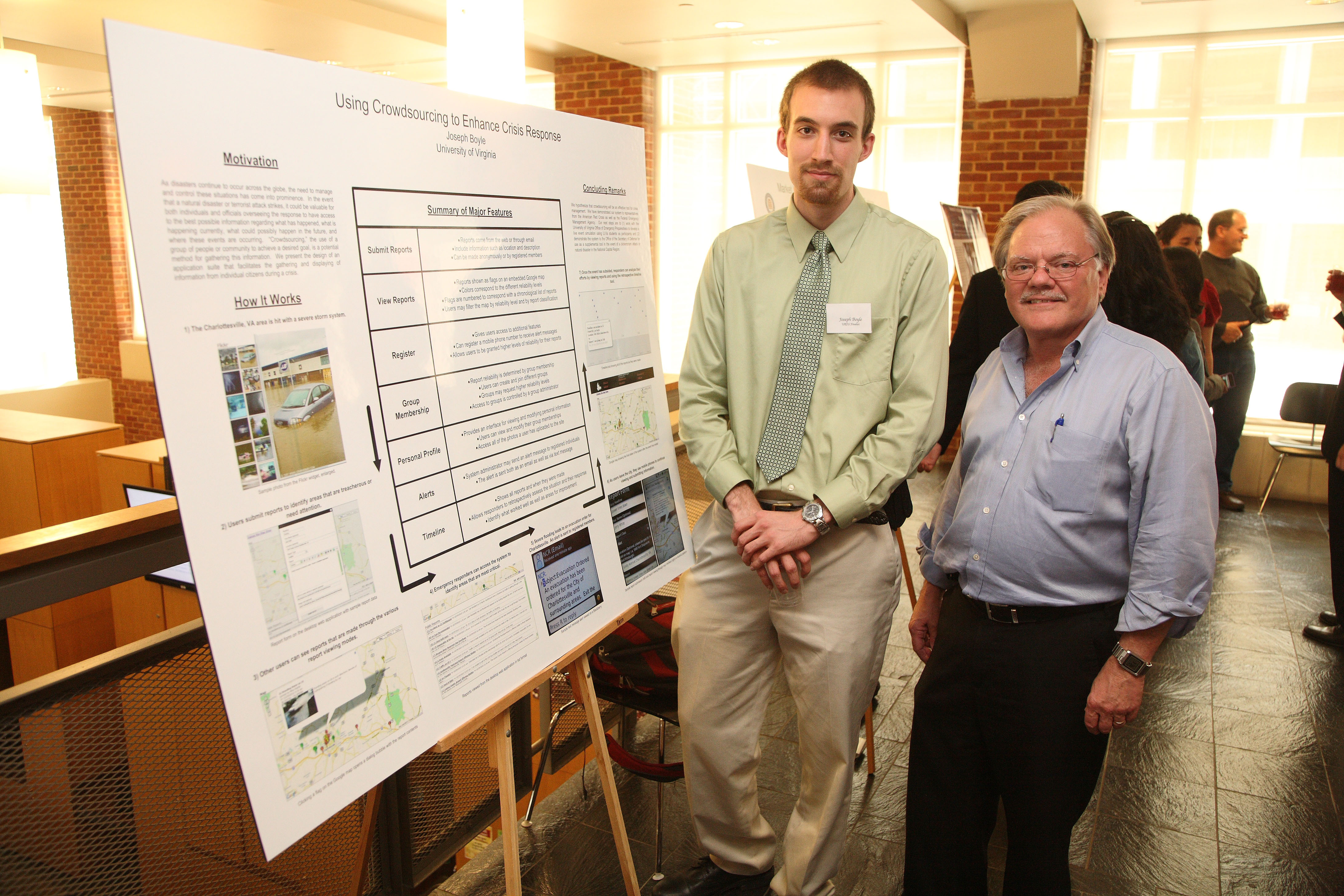June 30, 2011 — In the event of a catastrophe such as a bioterrorism attack, the public needs critical information as quickly as possible. For researchers at the University of Virginia School of Engineering and Applied Science, the solution lies in using citizen communicators to share information, or "crowdsourcing," as it is termed.
Computer science professor Alfred Weaver and 2011 U.Va. graduate Joseph Boyle created an efficient, Web-based crowdsourcing application that allows people to submit and view information about an event. In the case of a disaster, a massive amount of detailed and chronological information can be quickly gathered and disseminated.
"The idea is that you will have the application standing in place awaiting a natural disaster," Weaver said. "When disaster strikes, the media can announce the Web address of the crowdsourcing software so citizens can participate in the crisis recovery by submitting reports of what they observe."
The project, funded by the U.S. Department of Defense Energy Support Center, was born when U.Va. School of Medicine faculty came to Weaver seeking a way to help manage a potential disaster within the community, such as a bioterrorism attack. For the past year, Weaver and Boyle have been working on the project, with Boyle spending an estimated 15 hours per week crafting the application.
The current model allows users to submit reports – containing a headline, the nature of the incident, location and time, and photos, among other details – through a website or by email. Users are then able to view the reports, which are embedded on a Google map to identify the affected area, highlighted by a marker and accompanied with a short description.
"We are working this summer on developing ways to screen incoming information programmatically to assess the information's reliability," Weaver said. Currently, the system depends on administrators who assign reliability to users based upon their history.
One of the most important features of the system is its ability to send mass alerts through email and text messages to users of the application.
The project works on Android, Blackberry and iPhone platforms. Weaver and Boyle's prototype has already been praised by the Federal Emergency Management Agency and the American Red Cross.
Computer science professor Alfred Weaver and 2011 U.Va. graduate Joseph Boyle created an efficient, Web-based crowdsourcing application that allows people to submit and view information about an event. In the case of a disaster, a massive amount of detailed and chronological information can be quickly gathered and disseminated.
"The idea is that you will have the application standing in place awaiting a natural disaster," Weaver said. "When disaster strikes, the media can announce the Web address of the crowdsourcing software so citizens can participate in the crisis recovery by submitting reports of what they observe."
The project, funded by the U.S. Department of Defense Energy Support Center, was born when U.Va. School of Medicine faculty came to Weaver seeking a way to help manage a potential disaster within the community, such as a bioterrorism attack. For the past year, Weaver and Boyle have been working on the project, with Boyle spending an estimated 15 hours per week crafting the application.
The current model allows users to submit reports – containing a headline, the nature of the incident, location and time, and photos, among other details – through a website or by email. Users are then able to view the reports, which are embedded on a Google map to identify the affected area, highlighted by a marker and accompanied with a short description.
"We are working this summer on developing ways to screen incoming information programmatically to assess the information's reliability," Weaver said. Currently, the system depends on administrators who assign reliability to users based upon their history.
One of the most important features of the system is its ability to send mass alerts through email and text messages to users of the application.
The project works on Android, Blackberry and iPhone platforms. Weaver and Boyle's prototype has already been praised by the Federal Emergency Management Agency and the American Red Cross.
— By Andrew Clark
Media Contact
Article Information
June 30, 2011
/content/uva-engineers-help-manage-crisis-crowdsourcing

